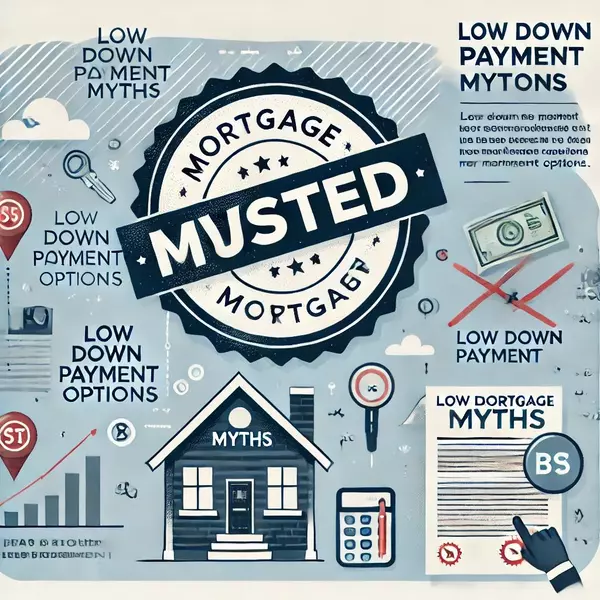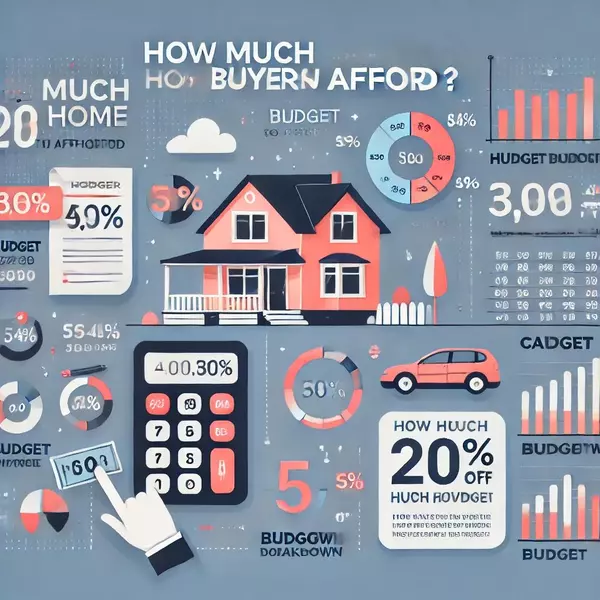Essential Steps to Achieve Homeownership
Essential Steps to Achieve Homeownership
Homeownership is a significant milestone. It's a symbol of financial stability and independence.
Yet, the journey to owning a home can be complex. It's filled with decisions, paperwork, and financial commitments.
This guide aims to simplify the process. It outlines the essential steps to homeownership, providing a roadmap for potential homebuyers.
From assessing your financial readiness to closing the deal, we've got you covered. We'll delve into the intricacies of buying a house, offering practical advice along the way.
Whether you're a first-time homebuyer or considering your next property, this guide is for you. It's designed to help you navigate the path to property ownership with confidence.
Remember, buying a house is not just a transaction. It's a journey that leads to a place you can call home.
So, let's embark on this journey together. Let's take the first step towards achieving your homeownership dream.
"
Understanding the Homeownership Journey
The path to homeownership begins with understanding its significance. Owning a home is more than just possessing property. It signifies stability and long-term security.
Homeownership offers financial rewards. These include building equity and potential tax benefits. It's an investment in your future that can appreciate over time.
Approaching this journey requires knowledge and planning. Each step needs careful consideration. From determining your budget to finalizing the purchase, this journey is about informed choices. It's essential to know what to expect and prepare adequately. Understanding the homeownership journey empowers you to make decisions confidently and wisely.
Assessing Your Financial Readiness
Before diving into property ownership, assess your financial health. Knowing where you stand financially is vital. It informs decisions, helping you plan accordingly.
Start by evaluating your current financial situation. Look at your income, savings, and spending habits. Are you comfortable with how much you're saving each month?
Consider all expenses involved in buying a house. Many costs aren’t obvious at first glance. These include maintenance, insurance, and property taxes.
Create a budgeting strategy tailored for homeownership. Prioritize saving and paying down debts. This improves your financial position when seeking a mortgage.
Here’s what to evaluate:
- Your monthly income versus expenses
- Outstanding debts and commitments
- Available savings for a down payment
- Any long-term financial goals

A comprehensive review is beneficial. It shows whether you are ready or need more time to prepare financially. Take the time to ensure your budget aligns with your home buying goals.
Credit Score and Its Impact
Your credit score plays a crucial role in buying a house. It influences the mortgage rates available to you. A higher score generally means better loan terms.
Lenders assess your creditworthiness through this score. It reflects your past borrowing behaviors. A good score indicates reliability, opening the door to favorable rates.
If your score is low, don't worry. Improving it is possible with focused effort. Start by paying off debts and reducing your credit card balances. Also, ensure you make all payments on time.
Small changes can significantly boost your score. Over time, you’ll notice improvements. A strong credit score can save you thousands in interest over the life of your loan.
Saving for a Down Payment
The down payment is a major step in buying a home. It's usually a percentage of the purchase price. Typically, it ranges from 3% to 20%.
Start saving early for this crucial expense. It's wise to set a target amount based on the home's price range you’re considering. Regular savings add up quickly over time.
Explore various savings plans and strategies. These may include:
- Opening a high-yield savings account
- Setting automatic transfers from your paycheck
- Reducing unnecessary monthly expenses
- Exploring down payment assistance programs
- Gifting contributions from family, if feasible
Assistance programs can be a great aid. Many states offer support for first-time homebuyers. Research these options and see if you qualify for any.
Having a solid down payment shows financial responsibility. It also helps reduce your monthly payments. The more you save, the stronger your financial footing will be when you make an offer.
Exploring Mortgage Options
Navigating mortgage options is key in the steps to homeownership. Various loan types fit different needs, so it's essential to explore them. Understanding options allows you to find the best match for your financial situation.
Among the most common mortgages are conventional loans. These loans typically require higher credit scores, but they offer competitive rates. For those with a lower credit score, FHA loans may be suitable. They have lower credit score requirements and a smaller down payment.
VA loans, available to veterans, are another beneficial choice. They often require no down payment and have favorable terms. Additionally, USDA loans support those buying homes in rural areas with competitive rates and terms.
When comparing mortgages, consider the following:
- Interest rates and annual percentage rates (APRs)
- Required down payments and private mortgage insurance (PMI)
- Loan terms, such as 15-year versus 30-year
- Closing costs associated with each option
Choosing the right mortgage can save you significant money over time. Carefully review all terms and costs associated with each option. This step is crucial in securing an affordable and sustainable home loan.
Getting Pre-Approved for a Mortgage
Pre-approval is a critical step when buying a house. It gives you a clear sense of your budget. Lenders evaluate your financial health to determine loan eligibility.
With pre-approval, you gain negotiating power. Sellers see you as a serious buyer. It also helps refine your home search, focusing on properties within your budget.
Securing pre-approval involves submitting financial documents. These include proof of income, bank statements, and credit reports. The lender assesses these to offer a loan estimate, including potential interest rates.
Start the pre-approval process early. It clarifies financial standing and streamlines future steps. This proactive measure ensures you’re ready to make a competitive offer when you find your dream home.
Finding the Right Real Estate Agent
Selecting a real estate agent is a crucial step in the journey of buying a house. A good agent listens to your needs and understands your property goals. Their expertise helps navigate the complex real estate market efficiently.
You need someone knowledgeable about the local area and current market trends. They should offer insights into neighborhoods, schools, and amenities. This informed perspective can significantly aid in making the right home choice for you and your family.
Interview several agents before making a choice. Ask about their experience, track record, and approach to client communication. A great agent is approachable and willing to answer all your questions, easing the home buying process.

A real estate agent becomes a guide and advocate in securing the home of your dreams. Their role is essential to ensure a smooth and successful home buying experience. Take time to find the right match for your needs.
Searching for Your Ideal Home
Once you've partnered with a trustworthy real estate agent, it's time to search for your ideal home. Start by clarifying your must-haves and preferences. This will narrow your search, saving time and effort.
Consider your lifestyle needs, such as space requirements, number of bedrooms, and proximity to work or schools. Use online listings and attend open houses to explore a variety of options.
It's essential to evaluate each property not just for its features, but also for potential future value. Engaging in this due diligence helps ensure a smart investment. Take notes and compare homes you visit to remember details and make informed decisions.
Here's a checklist to streamline your home search:
- Verify property size and layout.
- Check for necessary repairs or upgrades.
- Assess neighborhood safety and appeal.
- Consider commute times to work or key locations.
- Investigate local school ratings.

Every house has its unique characteristics and potential. Be patient and thorough in your search to find a home that aligns with your aspirations and financial capacity.
Considering Neighborhoods and Amenities
When buying a house, it's crucial to assess the neighborhood thoroughly. Different neighborhoods offer varying lifestyles and amenities. Prioritize what matters most to you, such as proximity to parks, shopping centers, or entertainment venues.
Think about your daily commute and how the location impacts travel time. Consider if the neighborhood's style and vibe suit your preferences. Living in an area that reflects your lifestyle will contribute to overall satisfaction.
Don't overlook schools and safety if you have or plan to have children. Investigate school ratings and local crime statistics. A good neighborhood is more than just convenience; it's about comfort and community.
Additionally, future development plans can influence the area's appeal and property value. Research any upcoming changes or projects nearby to make an informed decision. This step ensures that the neighborhood will continue to meet your needs over time.
Making an Offer and Negotiating
Once you’ve found a home you love, it’s time to make an offer. Begin by reviewing recent sales in the area to determine a fair starting point. Your real estate agent will assist in crafting a competitive offer letter.
The offer should include details like the proposed price, contingencies, and any special requests. Factor in market conditions and competition when deciding how much to offer.
Negotiating is an essential part of buying a house. Be prepared to discuss your offer and adjust based on the seller's response. Stay within your budget and avoid emotional decisions.
Key components of an offer include:
- Purchase price
- Closing date
- Contingencies (inspections, financing)
- Earnest money deposit
- Seller concessions or allowances
Successful negotiation requires patience and compromise. Work closely with your real estate agent to ensure your interests are protected while reaching an agreement. This step is crucial in moving closer to property ownership.
The Importance of Home Inspections
A home inspection is a critical step before finalizing your purchase. It unveils potential issues that could affect your decision. Hiring a qualified home inspector provides peace of mind and protection.
During the inspection, a professional assesses the home's condition. They check key areas like the roof, foundation, plumbing, and electrical systems. Any defects discovered can influence negotiations.
If the inspection reveals problems, you can negotiate repairs or a price reduction. This ensures you aren't left with unexpected costly repairs post-purchase. Never skip this essential step in your home buying process.
A thorough inspection gives you a clearer picture of what you're buying. It helps you make an informed decision and plan for future maintenance or improvements. Understanding the home's condition is vital to avoid surprises once you own the property.
Navigating the Closing Process
The closing process is the final step before you officially own your new home. It involves several essential tasks that ensure a smooth transition. Paying attention to detail at this stage is crucial.
First, review all documents involved in the sale. These include the sales contract, loan agreement, and title insurance. Understanding these documents protects your interests and prevents future issues.
You'll need to schedule a final walk-through of the property. This ensures that all agreed-upon repairs are complete and the home is in expected condition. If anything is amiss, address it before closing.
Be prepared for closing day by organizing the necessary funds. This includes your down payment, closing costs, and other applicable fees. A cashier's check or wire transfer is typically required for payment.
Key closing tasks include:
- Conducting a final walk-through
- Reviewing all documents
- Securing a cashier's check or wire transfer
- Signing the sales contract
- Completing the loan process
Once the paperwork is signed and funds transferred, you'll receive the keys to your new home. The feeling of achieving property ownership is unmatched and well worth the effort.
Understanding Closing Costs and Escrow
Closing costs are additional fees beyond the home's purchase price. They cover expenses like loan origination, appraisal, and title insurance. Expect closing costs to range between 2% and 5% of the home price.
It's vital to budget for these expenses and plan accordingly. Your lender will provide a Closing Disclosure statement. This document outlines all fees involved, helping you prepare financially.
The escrow process is a safeguard ensuring both buyer and seller meet agreed terms. An escrow account holds funds while conditions outlined in the sales contract are fulfilled.
Understanding closing costs and escrow prevents surprises on closing day. With careful planning, these elements can be managed smoothly. These financial aspects are crucial in the steps to homeownership, finalizing your homebuying journey.
Settling into Your New Home
Moving into your new home is an exciting milestone. It marks the beginning of your property ownership journey. Start by organizing your space to make it feel like home.
Unpack essentials first, such as kitchenware, toiletries, and clothing. Prioritize setting up key areas like the bedroom and living room. This helps create a comfortable environment quickly.
Make time to explore your new surroundings and establish community connections. Introduce yourself to neighbors and visit local amenities. Familiarity with the area contributes to a smoother transition.
Consider personalizing your living space with decor that reflects your style. Adding personal touches can enhance your comfort and satisfaction. Over time, these details will make your home uniquely yours.
Long-Term Homeownership Responsibilities
Owning a home comes with ongoing responsibilities that ensure its value and functionality. Routine maintenance is crucial to prevent major problems. Stay proactive to keep your property in top condition.
Schedule regular inspections for systems like HVAC and plumbing. Attend to repairs promptly to avoid costly damages. This diligence preserves your home’s integrity and minimizes unexpected expenses.
Managing property taxes and insurance is also essential. Regularly reviewing these obligations ensures compliance and financial security. Adjust coverage as needed to match your home’s evolving circumstances.
Homeownership also involves enhancing your investment through strategic improvements. Plan and prioritize renovations that add value and improve your living experience. Thoughtful upgrades contribute to long-term satisfaction and financial gain.
Building a contingency fund is wise for unforeseen repairs or emergencies. This financial cushion provides peace of mind and prepares you for future challenges. Being prepared is key to successful homeownership.
Conclusion: Embracing the Homeownership Experience
Achieving homeownership is a significant journey and a rewarding accomplishment. It involves planning, effort, and smart decisions. Each step you take brings you closer to creating a stable and fulfilling environment.
As you settle into this role, embrace the responsibilities and joys it brings. Owning a home offers a unique sense of security and personal growth. Cherish this chapter of your life, and enjoy the fruits of your labor. Your home is not just an investment; it is a place where memories are made and future dreams take shape.
Categories
Recent Posts









